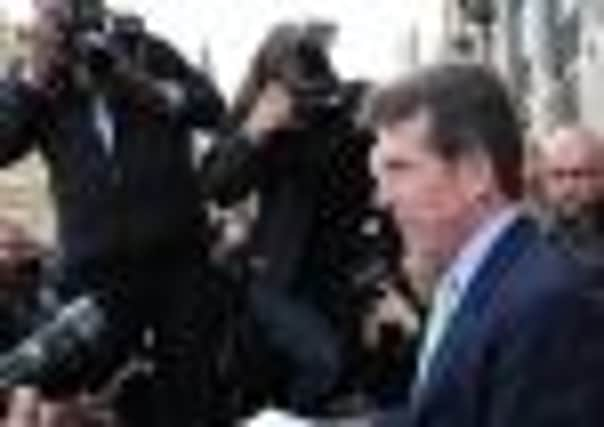Scandal-hit banking sector faces more shame as regulators impose penalties


At the heart of this year’s controversies was the firestorm surrounding Libor – the interbank lending rate that Barclays and UBS traders sought to manipulate for their own personal gain.
But with the compensation bill for mis-sold payment protection insurance (PPI) soaring ever higher, further mis-selling claims surrounding complex financial products and dodgy dealings with Iranians and other rogue states, shame was in plentiful supply.
Advertisement
Hide AdAdvertisement
Hide AdThe Financial Services Authority (FSA) and two US regulators dropped the Libor bombshell in June, unveiling a combined £290 million penalty against Barclays.
A number of traders were found to have altered rates to boost profits and bonus rewards, while the bank was also accused of lowering submissions in a bid to alter the perception of its finances – specifically that it was healthier than it actually was.
The claims ultimately led to the resignation of Barclays boss Bob Diamond, sparked a criminal investigation and became the focal point of a bitter row in Westminster over ethics in the banking sector.
And, crucially, Barclays is not alone. Around 20 other institutions, including Royal Bank of Scotland, are being investigated for Libor manipulation and face hefty fines and legal costs if misconduct is found.
As it imposed its slice of £940m worth of penalties on UBS, Britain’s financial regulator said attempts at the Swiss bank to manipulate Libor were “extensive and widespread”, while it found traders were openly bribing, and colluding with, external brokers.
As the Libor maelstrom pulled in Barclays staff, Bank of England policymakers and Whitehall officials, a new scandal emerged – and went relatively unnoticed.
Barclays, HSBC, Lloyds and Royal Bank of Scotland all agreed to compensate customers over the mis-selling of complex financial products to small businesses.
The so-called “interest rate swaps” are complicated derivatives products that may have been sold as protection – or to act as a hedge – against a rise in interest rates without the customer fully grasping the downside risks.
Advertisement
Hide AdAdvertisement
Hide AdBusiness owners who were mis-sold interest-rate swaps suffered “a difficult and distressing experience with many people’s livelihoods affected”, the Financial Services Authority said.
So far, RBS, Barclays and HSBC have set aside provisions of £50m, £450m and £150m respectively to deal with claims and compensation for swaps mis-selling. Barclays is facing a civil court case next year over claims it mis-sold two swaps worth £70m to care-home operator Guardian Care Homes, which is responsible for the welfare of more than 1,000 residents.
But the mis-selling of PPI is on course to be the costliest financial scandal in British history.
The combined cost to the UK’s high street banks is now more than £10 billion and could escalate.
PPI is designed to cover debt repayments if the holder is ill or loses their job and is often sold alongside personal loans, credit cards and mortgages.
The scandal lay not in the product, but in its expense and the way that it was being sold – with some banks pushing the product on people who would never have been able to make a claim.
Later in the summer, in what sounded like the plot of a best-selling thriller, a US Senate investigation accused Europe’s biggest bank HSBC of allowing rogue states and drugs cartels to launder billions of pounds through its US arm.
The findings, which accused HSBC of ignoring warnings and breaching safeguards that should have stopped the laundering of money from Iran, Mexico and Syria, led to the resignation of head of compliance David Bagley.
Advertisement
Hide AdAdvertisement
Hide AdIt emerged the US arm transported $7bn (£4.5bn) in cash in armoured vehicles to its Mexican arm in 2007 to 2008 and treated it as a “low risk” client.
Standard Chartered was later dragged into a similar row when US regulators found it had breached sanctions over dealings with Iran.
The 160-year-old bank, which had recently hailed its culture and values, used underhand tactics to conceal dealings with Tehran, exposing the US to terrorists and drug kingpins in the process.
Findings include a memo sent in October 2006 from the bank’s US chief executive to the group executive director in London, raising concerns about the activities with Iran.
The group executive director allegedly replied: “You f****** Americans. Who are you to tell us, the rest of the world, that we’re not going to deal with Iranians?”
In the wake of Libor, Prime Minister David Cameron set up the Parliamentary Commission on Banking Standards to look at the sector’s culture.